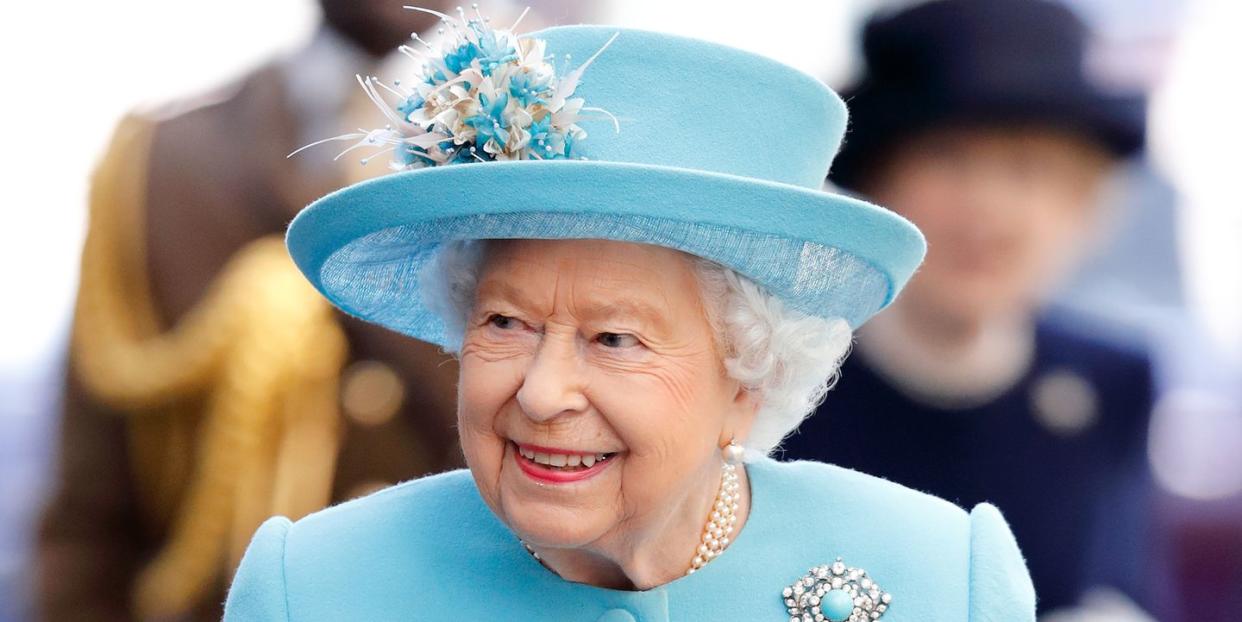Queen Elizabeth Joins Cultural Boycott of Russia by Cancelling Donation

- Oops!Something went wrong.Please try again later.
As global sanctions continue to cripple Russia’s economy, cultural boycotts—including the suspension of Netflix services and Disney, Sony Pictures, and Warner Bros. halting theatrical releases—are also having a major impact on the country’s once-thriving arts and entertainment scene.
And now, Queen Elizabeth is also taking a stance against the ongoing attacks on Ukraine by withdrawing her permission for the Kremlin Museums exhibition in Moscow to display three swords from the monarch's art collection.
The decision was made in mid-February, just before Russia's president, Vladimir Putin, sent 100,000 Russian troops to the borders of Ukraine, a spokesperson for the Royal Collection confirms to BAZAAR.com.
A Moscow-based spokesperson for the Kremlin Museums exhibition, "The Duel: From Trial by Combat to a Noble Crime," confirms that the display has now been put on hold indefinitely due to institutions across Europe halting loans of artifacts. "The core of the project consists of exhibits from European museums, which were forced to withdraw them before the time due to the geopolitical situation," the museum said in a statement.
Prior to the exhibition's cancellation, the Kremlin Museums website proudly stated that items would be on loan from the queen and the Royal Armouries museum in the United Kingdom, as well as the Louvre in Paris, the Kunsthistorisches Museum in Vienna, and the Prado Museum in Madrid.
Six items from Britain's Royal Armouries museums—including a 17th-century gauntlet and cavalry helmet—are currently on their way back to Britain from Russia after being recalled last month. A spokesperson told the Guardian newspaper that Moscow Kremlin Museums "have acted professionally and collaboratively throughout, and the items have left Russia and are en route through Europe."
French culture minister Roselyne Bachelot explained to Le Monde that remaining attached to the exhibition would have sent the wrong message. "Our presence could have been exploited as a sign of a divergence between European countries," she told the newspaper. "There was no question of dissociating [from the other European institutions]."
Though the queen remains apolitical, she has shown her support for Ukraine in a number of ways. On March 3, a spokesperson for the Disasters Emergency Committee (DEC) confirmed to BAZAAR that the monarch had made a "generous donation" to their fund supporting a network of charities on the ground in Ukraine and neighboring countries helping Ukrainian refugees.
And last week, during a meeting with Canadian prime minister Justin Trudeau, the 95-year-old royal was photographed alongside a large arrangement of blue-and-yellow flowers, the national colors of Ukraine, at her Windsor Castle home.
You Might Also Like

